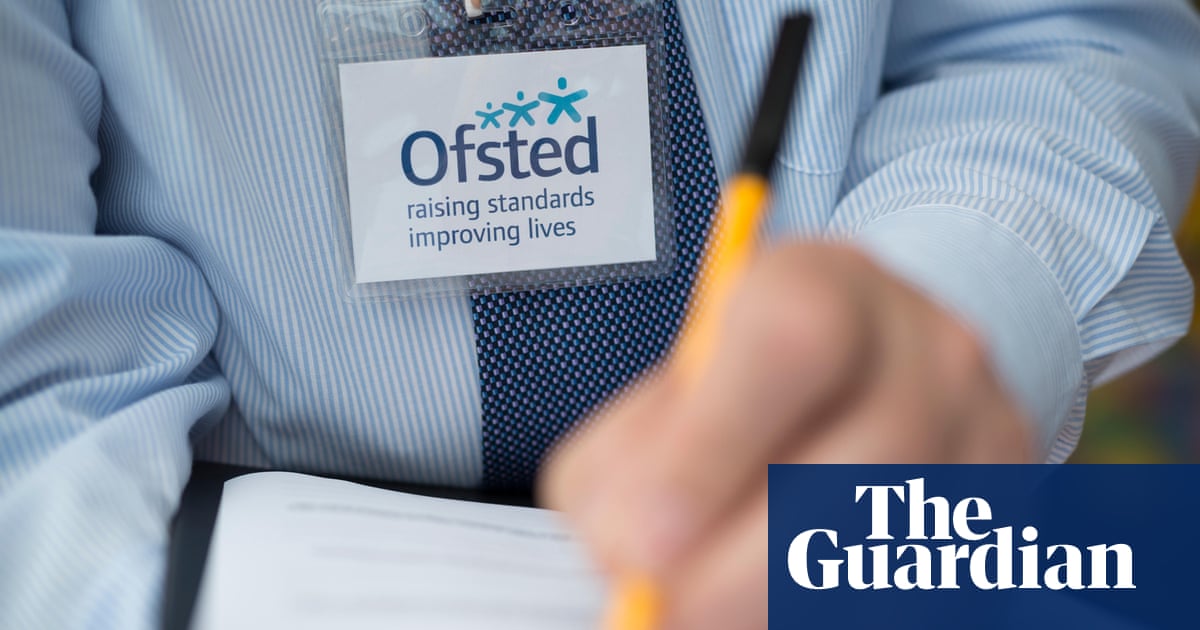Ofsted, the body responsible for safeguarding in education inEngland, has been accused of “offensive” and “clumsy” discrimination after telling inspectors that children with autism are “at increased risk of being susceptible to extremism”.
A training manual used to teach hundreds of school inspectors also claims that children who are autistic are “more likely to develop special interests” and “can be drawn into extremism” as a result.
The National Autistic Society warned that the document risked stigmatising autistic traits, while a human rights organisation said the manual’s teachings “draw a target on autistic children”.
Ofsted has defended the document, saying that its training offers an understanding of different circumstances in which children might be more susceptible to extremism.
The disclosure comes amid deepening concerns over the number of autistic children who have been referred to Prevent, the government’s deradicalisation programme.
Last Monday the home secretary, Yvette Cooper, said she was “really worried” by “a doubling in the number of young people” referred to Prevent.
Ofsted’s statements on autism emerged in a document used to train inspectors. Entitled Inspection Safeguarding Session – Prevent Extract 2024, the document says: “Children and young people with autism are at increased risk of being susceptible to extremism. This is because they are more likely to develop special interests.”
“Due to this and any social communication needs, children with autism are more likely to experience social isolation and so use the internet as a way to find friends. They trust the information they read and the ‘friends’ that they find online and so can be drawn into extremism,” it says.
Tim Nicholls, the assistant director of policy, research and strategy at the National Autistic Society, said autistic people and their families would be “offended and concerned” by how autism is portrayed in the training manual.
Nicholls said: “Words matter, so it’s important not to demonise or stigmatise autistic traits.
“Ofsted clearly has an important role here … However, when autism is included, it needs to be approached in a sensitive way.
“The wording in this training document is oversimplifying a very complicated and serious issue. It’s not just about ‘special interests’ or ‘using the internet as a way to find friends’. This clumsy generalisation proves that it’s essential that those developing, delivering and participating in Ofsted’s training on radicalisation and extremism have a comprehensive understanding of autism.
“This is the latest in one of many issues surrounding Prevent. We believe the support system for autistic children is broken. We’re worried that many children are being inappropriately referred as a last resort, when no other support is being offered.”
Sarah St Vincent, the executive director of Rights and Security International, which obtained the document through a freedom of information request, said: “The government has not shown that autistic children are any more likely to pose a serious threat of violence than anyone else is.
“Instead, the Ofsted trainings draw a target on autistic children based on what look to us like sweeping and simplistic statements. This could amount to direct and illegal discrimination.
“It could also lead to a feedback loop in which autistic children are increasingly over-policed, with lasting consequences.”
Sign up toFirst Edition
Our morning email breaks down the key stories of the day, telling you what’s happening and why it matters
after newsletter promotion
An Ofsted spokesperson said: “Keeping children safe is our top priority. This includes protecting all children from the threat of extremism. Our training equips inspectors with knowledge of the risks posed by extremists and extremist ideology, as well as an understanding of a variety of different circumstances in which children might be more susceptible to the threat of extremism.”
Ofsted is responsible for training more than 2,000 inspectors in online and in-person sessions.
Created in the wake of 9/11, Prevent aims to identifypeople at risk of radicalisationbefore they have committed any crime. The programme relies on information from teachers and clinicians who are under a legal duty to report anyone, of any age, suspected of harbouring extremist views.
Counter-terrorism police then identify those deemed to be a genuine threat. The most high-risk individuals are offered support known as Channel intervention.
A 2021 internal Home Office analysis found that more than a quarter of those receiving deradicalisation support from the Channel programme had either been diagnosed or had a suspected diagnosis of autism, compared with about 1% of the general population.
However, the Home Office has indicated that data about protected characteristics of referred persons is often not available. It said existing Prevent and Channel data did not allow for a comprehensive analysis of all protected characteristics of individuals referred.
Jonathan Hall KC, the independent reviewer of terrorism legislation, has voiced his concerns thata “staggeringly high”number of autistic people are referred to Prevent.
He has cited terrorism cases in which the defendants were autistic, including the then 17-year-old Lloyd Gunton, who declared himself an Islamic State soldier andwas sentenced to life in prison for preparing a vehicle and knife attack in Cardiffin 2018.
